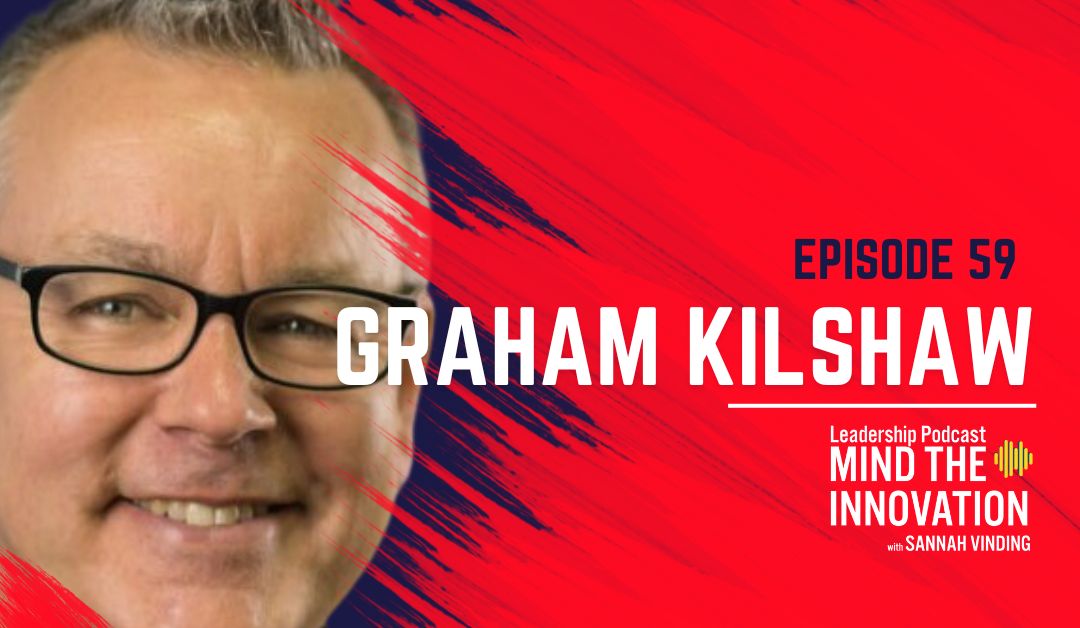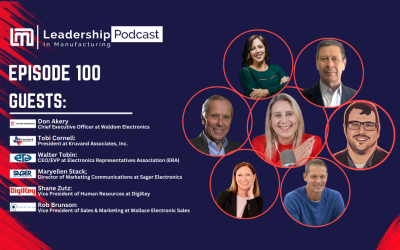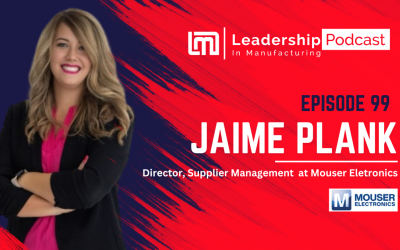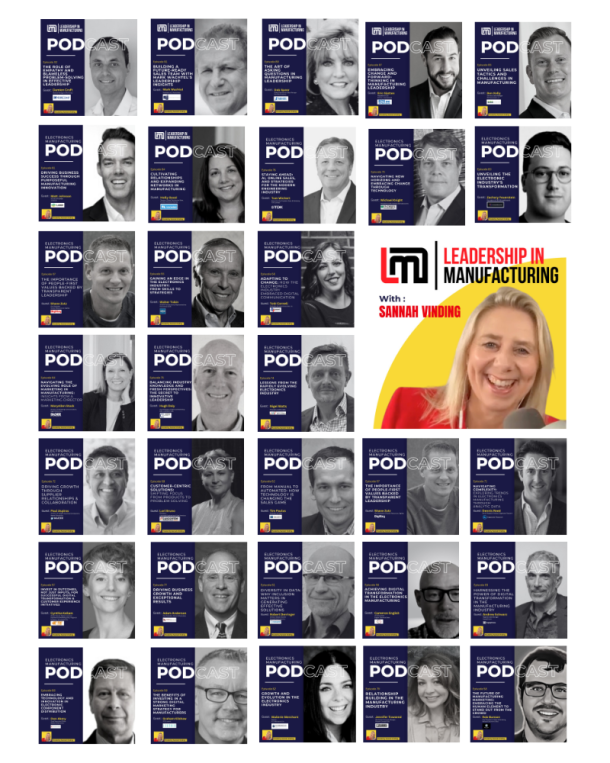Episode 59
The Benefits of Investing in a Strong Digital Marketing Strategy for Manufacturers

The manufacturing industry is in the midst of a major shift – salespeople are being transformed into marketing professionals. Gone are the days of simply product-pitching; instead, manufacturers are turning to problem-solving as a more effective way to engage customers and drive sales. Companies now place an emphasis on ROI when it comes to marketing efforts, and with that has come to a focus on thought leadership as a means of bringing value to potential buyers. To get ahead in this new world of manufacturing marketing, it’s essential to understand the latest trends and how they can help you achieve success.
In this episode, Graham Kilshaw, CEO of Lectrix, shares his insights on successful content marketing for engineers in the manufacturing industry. He emphasizes the need for a mindset shift from marketing to engineers, to marketing for engineers, to effectively reach and engage this critical audience.
Host
Sannah Vinding
Guest
Episode
E59
Key takeaways



Innovation is the fuel that propels manufacturing forward, and with the speed of innovation amped up significantly, the possibilities for progress are boundless.
Targeting, Tailoring, and Tracking
ROI is now a priority in marketing, with a focus on the impact on sales
In the age of digital marketing, measuring return on investment (ROI) is now a priority for many manufacturers. With the rise of data-driven decision-making, companies need to be able to accurately track their marketing ROI in order to make informed decisions about their campaigns. Additionally, measuring ROI can help manufacturers understand how their efforts are impacting sales and customer loyalty – two key metrics for any successful business.
For example, by tracking lead conversions from marketing campaigns or analyzing the customer lifetime value of repeat buyers, manufacturers can gain an understanding of how their marketing efforts translate into revenue. This information can then be used to refine strategies and optimize campaigns for maximum efficiency moving forward. Ultimately, prioritizing ROI measurement gives manufacturers the insights they need to drive sales and build long-term customer relationships.
Measuring ROI is no longer a nice-to-have in marketing, it’s a necessity. Understanding the impact of our efforts on sales and customer loyalty is crucial for driving business success in the digital age
Selling solutions, not just products, is key in modern manufacturing. Brand marketing and thought leadership showcase expertise and build trust for long-term customer connections.
From brand marketing to Thought Leadership in the manufacturing industry
In the modern manufacturing industry, traditional sales techniques are no longer enough to stay ahead of the competition. To truly stand out and build trust with customers, manufacturers must move beyond product-pitching and instead focus on problem-solving. This shift is where brand marketing and thought leadership comes in.
Through brand marketing, manufacturers can showcase their unique value proposition by creating campaigns that capture customer attention and resonate with target audiences. Thought leadership also plays a key role here, as it helps manufacturers position themselves as trusted experts in their field. By establishing a strong presence on social media platforms and other digital channels, manufacturers can demonstrate their knowledge and expertise while building relationships with potential customers.
Ultimately, by embracing brand marketing and thought leadership strategies, manufacturers can differentiate themselves from the competition by focusing on solving customer problems instead of pitching products. With this approach, they can create long-term connections that boost customer loyalty and drive sales growth over time.
Salespeople must now act as problem-solvers, using their knowledge and expertise to address customers’ needs and challenges.
The shift towards manufacturing salespeople becoming problem-solvers as opposed to product pitchmen is well underway. By applying marketing theory and practice in their everyday interactions with customers, these salespeople can foster a more meaningful relationship with them, ultimately leading to growth and success for both parties. With the right strategies and mindset, manufacturers can now tap into this market opportunity that lies at the intersection of marketing and sales.
Graham Kilshaw

Graham Kilshaw
CEO, Lectrix
Graham Kilshaw brings over 20 years of CEO experience to his current role as CEO of Lectrix. With a deep understanding of the business needs of the US and international electronics industry, Graham has developed a comprehensive skill set that includes sales, media, and marketing. Under his leadership, Lectrix has transitioned from a traditional print publisher to a full-service marketing agency that specializes in multi-channel marketing, events, content development, and sales enablement for clients in the electronics equipment, components, materials, software, and testing service spaces.
Related Episodes
How Do You Know if You Are a Good Leader? Leadership Tips – Episode 100 – Sannah Vinding
Discover effective leadership in manufacturing with insights from experts like Don Akery, Walter Tobin, Mary Ellen Stack, Shane Zutz, Rob Brunson, and Tobi Cornell. In this episode of the ‘Leadership in Manufacturing Podcast,’ hosted by Sannah Vinding, learn to identify good leadership through team success, feedback, and authentic interactions.
How to Balance Change and Stability in Global Leadership? Jaime Plank – Episode 99
Sannah Vinding sits down with Jaime Plank, Director of Supplier Management at Mouser Electronics. Discover insights on effective leadership, embracing change, maintaining a work-life balance in a hybrid work model, and the latest trends in the electronics industry.
New Episodes
Bi-Weekly Tuesday







